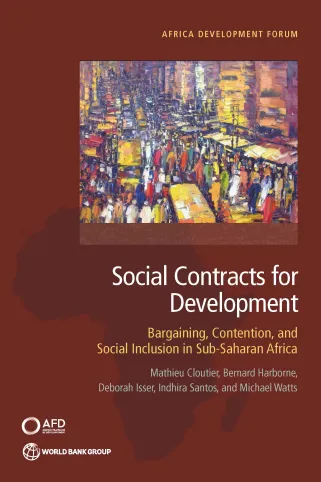Share the page
Social Contracts for Development
Published on

Sub-Saharan Africa has achieved significant gains in reducing the levels of extreme poverty in recent decades, yet the region continues to experience challenges across the development indicators, including energy access, literacy, delivery of services and goods, and jobs skills, as well as low levels of foreign direct investment. Exacerbating the difficulties faced by many countries are the sequelae of conflict, such as internal displacement and refugee migration. Social Contracts for Development: Bargaining, Contention, and Social Inclusion in Sub-Saharan Africa builds on recent World Bank attention to the real-life social and political economy factors that underlie the power dynamic and determine the selection and implementation of policies. Applying a social contract approach to development policy, the authors provide a framework and proposals on how to measure such a framework to strengthen policy and operational engagements in the region.
Useful Information
-
Authors
-
Mathieu Cloutier , Bernard Harborne, Deborah Isser, Indhira Santos, Michael Watts.
-
Number of pages
-
125
-
ISSN
-
978-1-4648-1662-8
-
Collection
-
Africa Development Forum
